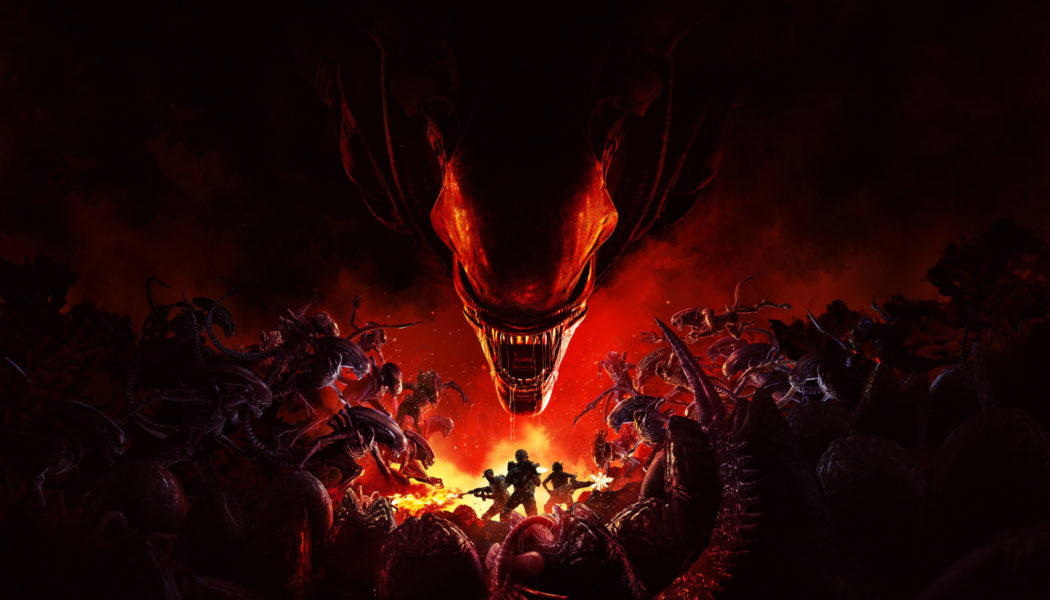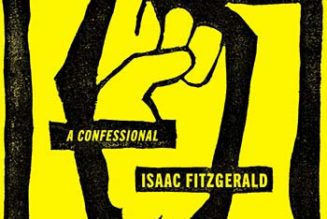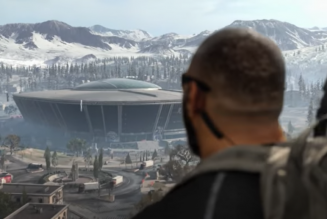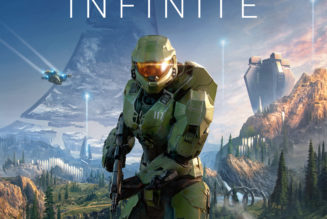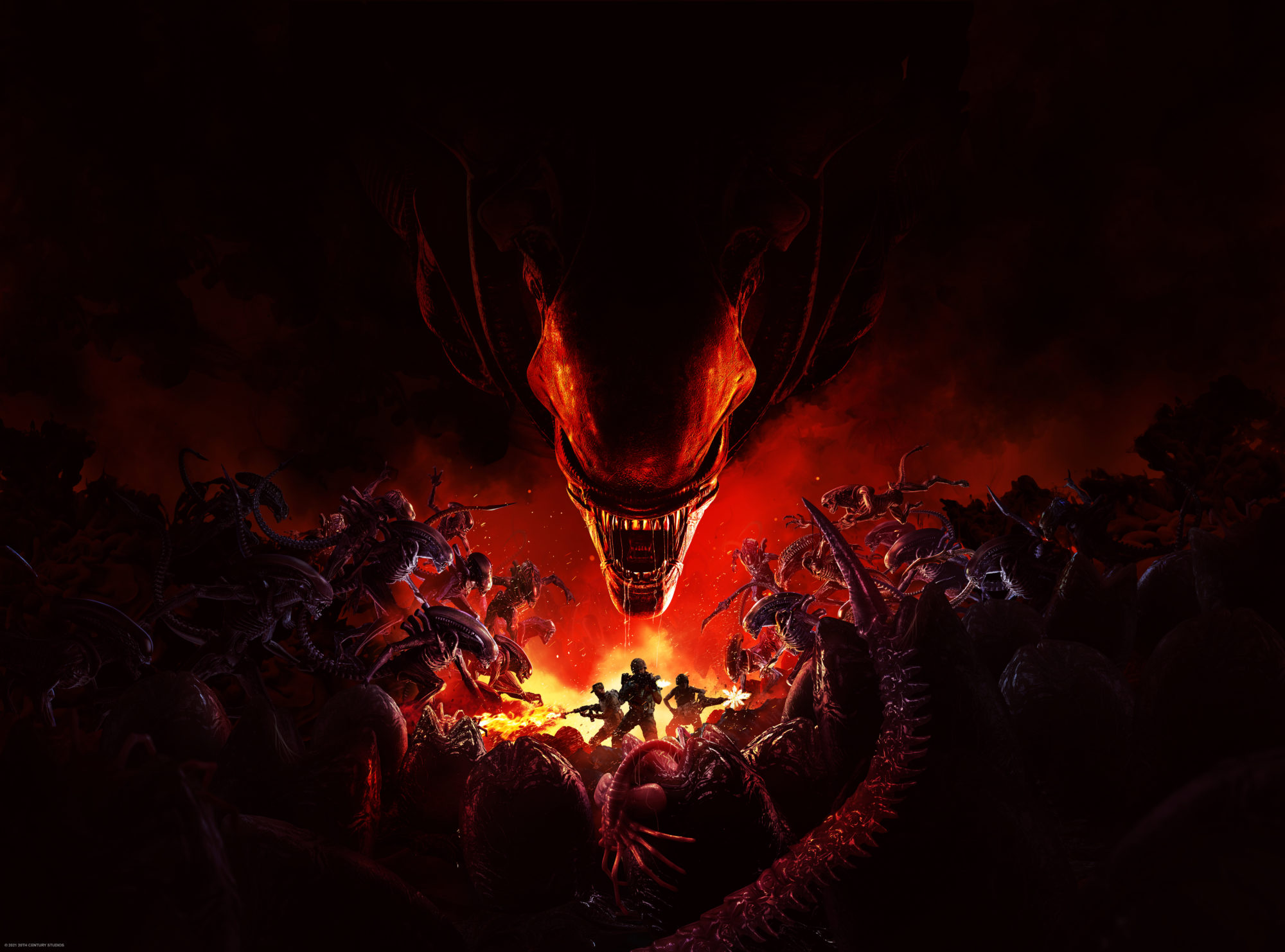
Aliens: Fireteam Elite has some big shoes to fill.
When the cooperative multiplayer shooter releases next week, it’ll need to find a way to bring the three-person squads directly into the Alien universe — one of the most recognizable franchises in sci-fi, horror, and everything in between.
But while Alien: Isolation (2014) channeled the original movie by focusing on the horrors of trying to hopelessly survive against a single Xenomorph, the upcoming title is more about the nonstop sci-fi action of Aliens. Of course, it’ll still need to keep some suspense and terror in the air to fit in with the classic movie trilogy and numerous spinoffs, but players won’t feel nearly as helpless this time around.
To set the mood for the adrenaline rush of a release, Cold Iron Studios brought in award-winning composer Austin Wintory. For anyone familiar with Wintory’s most famous work on relatively chill and relaxing games like Journey, Abzû and The Pathless, the fast-paced shooter may seem more than a bit out of character for the 36-year-old Grammy nominee.
Although Aliens: Fireteam Elite isn’t Wintory’s first foray into high-intensity action (thanks to previous titles like Absolver and Assassin’s Creed Syndicate), we still sat down with him via Zoom to find out about his experience working on arguably his biggest IP to date.
SPIN: Aliens: Fireteam Elite seems like a very different title than a lot of the games you typically do. What was it like to work on such a legendary IP that’s way outside of your wheelhouse?
Austin Wintory: My reputation tends to rest on things that are stylistically near opposites, but that’s exactly why it was exciting — never mind the fact that I was also a huge fan of the IP. But even if it was a new IP that was completely different from what I’m known for, it’s always exciting to stretch your legs in a different territory. That alone would have made it a joy, but then you add in the fact that it’s this very storied IP that lays claim to three of the best scores in this genre — whether you want to label it, sci-fi, or the intersection of sci-fi and horror or action, or however many labels want to slap on there — with [Alien composer] Jerry Goldsmith kicking it off, followed by [Aliens composer] James Horner and [Alien 3 composer] Elliot Goldenthal. That’s three of the best composers and three of their greatest works. It was a joy, a thrill, and of course, horribly terrifying, because how am I possibly going to live up to that experience?
Also, I may be the first composer to work on one of these that actually had a really great experience. Jerry Goldsmith and Ridley Scott famously had major issues with each other on the original, and then James Cameron and James Horner essentially swore to never speak to each other after Aliens. Then you’ve got Goldenthal and Fincher, who likes to pretend that Alien 3 doesn’t even exist. There’s a trail of bodies in the composer collaborations of this franchise, so I was sitting here through it all wondering if this is the real thing, because everyone’s a delight to work with and the game is awesome.
Speaking of genre, the Alien movies and games always kind of walk that line between horror, sci-fi, and action. How do you score something where it keeps that atmosphere and suspense while also being an action-heavy shooter?
I would say that the team at Cold Iron did not make a game which I would call emotionally ambiguous. It’s for sure an action game, so if drawing any kind of inspiration from our predecessors, Aliens is the clear landmark. Funny enough, one of the things we chose about the score is that in those moments in between the action, part of the way that we offer a reprise is that we go very light on the music — in many cases, there’s no music. For the most part, when the music is in, it’s in for the adrenaline and to go for the jugular. It’s not to accentuate horror or suspense. In moments that read like that — like a jump scare with a burst of steam or a hallway where you think you’re alone — we don’t really score those. We let the environment speak for itself. The result of which is this ebb and flow between interstitial moments of suspense and full-on, all-out action.
Outside of that action, the score obviously still has to build the world and narrative of Aliens: Fireteam Elite, so how did you go about creating an atmosphere unique to this game that still felt at home within the Alien universe?
One of the things that’s really cool is that sci-fi is very often associated with old fashioned analog synthesizers, if you think about classics like Logan’s Run. But one of the things that’s made this franchise different was that it was always very acoustic and kind of raw — even for Elliott Goldenthal, who was the most experimental and wild of the three original scores. They always contain odd colors and unfamiliar sounds. In the first film, Jerry Goldsmith was very famously using this instrument from the 16th century called the serpent, which is like a giant version of the recorder that you play in school — except curled like a literal snake. It’s a very raw, rustic, almost barbaric sound, and Goldsmith used it with some interesting analog recording techniques that created these tape delays and things. I’ve got a guy who plays that instrument, so I knew we had to feature that in this. I wanted to go places that Jerry didn’t even have available.
In the sequel, they used some of Goldsmith’s tricks that he carved out for the first one, but they had this very relentless, martial, military-flavored snare drum. So I said “OK, we don’t want to just use a snare drum, I want to layer like 20 different snare drums together.” Then once we covered our bases with the familiar, it was about finding what we can start to add and where we go from there. As the story goes on, I bring in things like electric bass and put it through the most god awful effects processing, so that it doesn’t really even sound like a bass. Then I brought in that classic sci-fi trope of weird electronics, but it involved things like me whistling into a microphone that had a bag over it, so it’s getting distorted and muted. Then I had my mic feeding live into my speakers to create a feedback loop, but because the loop is being fed through the bag, it self-destructed the signal pretty aggressively and just sounded weird and awful in the best way. It gets pretty bananas.
You’ve done such a wide variety of projects over the last couple of decades, is there anything else specifically you would like to do in the future?
One of the things that a lot of composers I admire have in common is that they had an endless fascination with blending genres. Aliens is a phenomenal IP for that, because it’s got one foot firmly planted in killer action and fun adrenaline mayhem, but it’s also part sci-fi and part horror. It’s really balancing a few different ingredients, so we get to bend genres as an attempt to capture it accurately. I find that the projects where I feel most at home have been ones that invited that level of experimentation. So the thing I want to do is some project that I can’t fathom right now coming along and saying “Hey, what if we take a little bit of this and a little bit of that?” and they’re two things I would have never thought to combine. Game developers as a whole are so creative and exploratory in their artistic instincts. They’re constantly saying “What if we take two games that have nothing to do with each you know — like Doom and Minecraft — and put those together?” As a composer, we have to find scores that match those, and it’s just endlessly enthralling.
